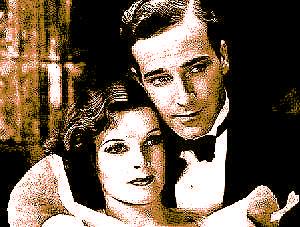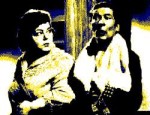Film Review

© James Travers 2009
The above content is owned by frenchfilms.org and must not be copied.
Film Synopsis
With her husband Hilary committed to an asylum for the insane, Meg Fairfield decides to divorce him so that she can marry another man, Gray Meredith. But on the day Meg intends to begin her new life with Gray, Hilary manages to escape from the asylum and returns to his home. He first meets his grown-up daughter, Sydney, who is herself about to get married, to Kit Humphreys. Sydney's resemblance to her mother revives in Hilary happy memories of his early married life with Meg and he realises how much his wife still means to him. As Hilary and Meg confront one another, Sydney realises that she may have inherited her father's insanity and wonders whether it is right for her to marry...© James Travers
The above content is owned by frenchfilms.org and must not be copied.
Similar Films
Here are some other films you may enjoy watching:- Le Lit à colonnes (1942)
- The Southerner (1945)
- La Belle équipe (1936)
- The Magnificent Ambersons (1942)
- Mikaël (1924)
Other related links:
Film Credits
- Director: George Cukor
- Script: Clemence Dane (play), Howard Estabrook, Harry Wagstaff Gribble
- Cinematographer: Sidney Hickox
- Music: Max Steiner
- Cast: John Barrymore (Hilary Fairfield), Billie Burke (Meg Fairfield), David Manners (Kit Humphreys), Katharine Hepburn (Sydney Fairfield), Paul Cavanagh (Gray Meredith), Henry Stephenson (Doctor Alliot), Gayle Evers (Bassett), Elizabeth Patterson (Aunt Hester Fairfield), Bramwell Fletcher (Gareth), Dick French (Party Guest), Julie Haydon (Party Guest), Dennis O'Keefe (Party Guest), Mildred Shay (Party Guest), Paul Irving
- Country: USA
- Language: English
- Support: Black and White
- Runtime: 70 min
The Carry On films, from the heyday of British film comedy

Kafka's tortuous trial of love

The silent era of French cinema
